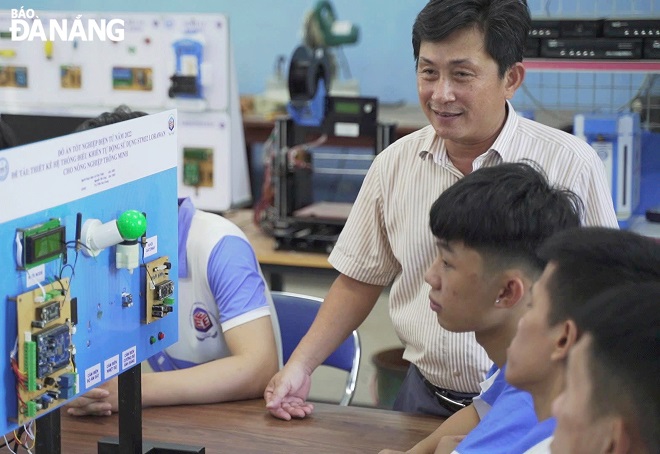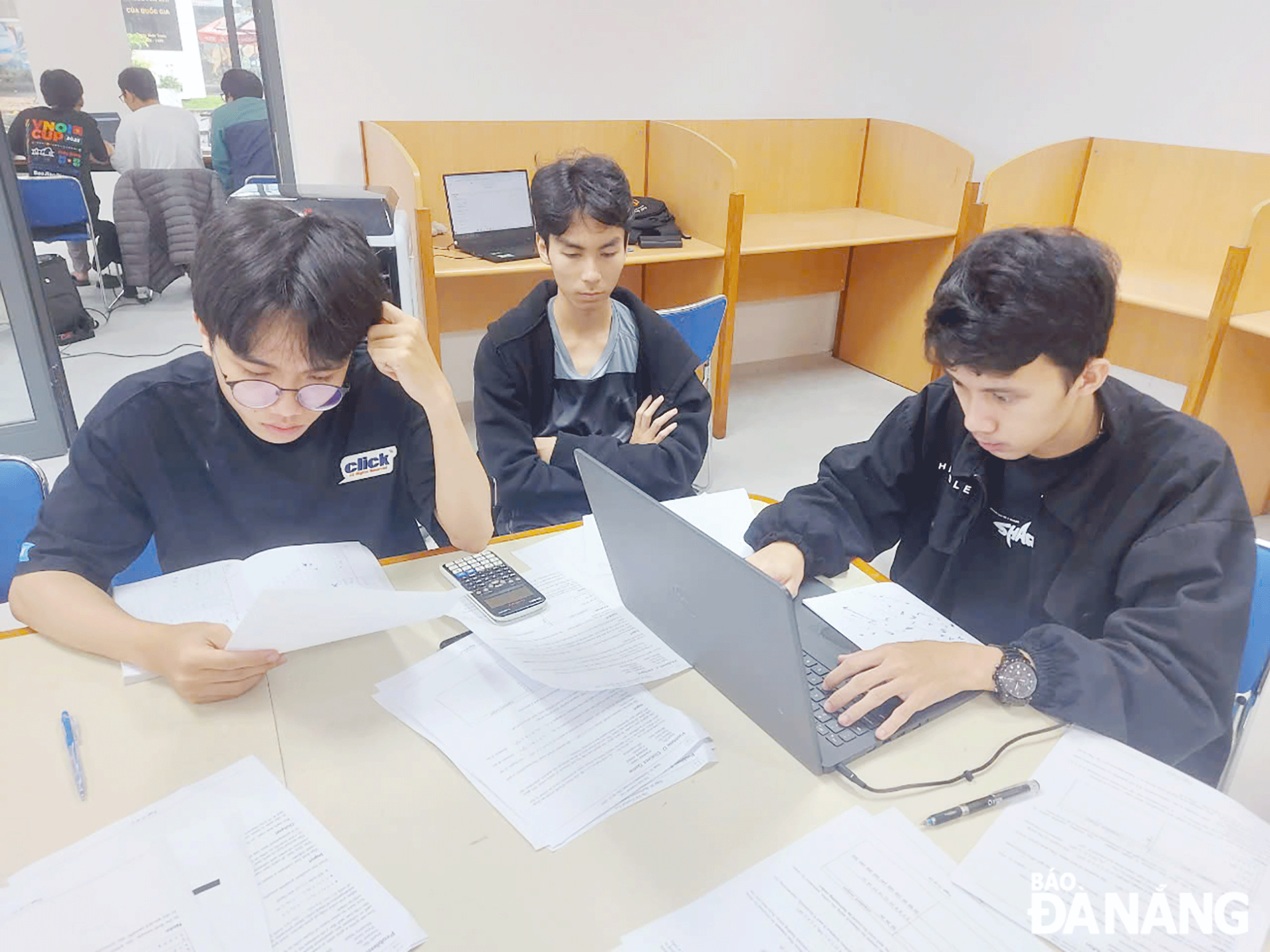Da Nang universities work to enhance quality of human resource training
Improving the quality of high-quality human resource training has been garnering interest from educational establishments under the University of Da Nang. This is also the core foundation to affirm prestige, requiring universities to have solutions to meet the requirements of the new trend.
 |
| Member universities of the University of Da Nang focus on improving training programmes linked to labour market needs. IN PHOTO: Teaching and learning activities at the University of Technical Education. Photo: THU HA |
Strong investment in facilities
Over the years, member universities of the University of Da Nang have made efforts to improve the quality of training, adapting to the general trend. The University of Science and Technology currently has 14 faculties with 15 doctoral, 17 master's and 39 undergraduate training programs. The school's annual enrollment target is about 4,000 students for all training levels, with a training scale of about 16,000 students.
In addition to the invested infrastructure, the school has put into operation the DUT Maker Innovation Space and the IC Design Lab, plus the Cyber Security Research Laboratory serving training and research in the field of information security and safety of the Faculty of Information Technology during the 2024-2025 academic year. These are projects sponsored by business partners to enhance facilities and utilities to serve the goal of improving the quality of training and scientific research for students and trainees.
According to Assoc. Prof. Dr. Nguyen Huu Hieu, Principal of the University of Science and Technology, along with the utilities, the school has concentrated on enhancing the quality of the teaching staff; improving the training programme in the direction of streamlining content and developing learners' capacity; and increasing practice, applying knowledge into practice.
Additionally, the curriculum is designed based on the training programmes of advanced countries in the world that have been accredited by international accreditation organisations. The Project Based Learning (PBL) model is applied to help students meet the standards of knowledge, problem-solving skills, research, critical thinking, creativity, communication and teamwork.
Thanks to the proactive and active innovation of training methods, the recruitment needs of businesses for the training majors at the school are always high with the average rate of graduates having jobs after one year at 98%, he said.
Assoc. Prof. Dr. Le Van Huy, Principal of the University of Economics, shared that the school identified that training digital human resources played a very important role in improving the quality of education and meeting the needs of the labour market. Therefore, the school focuses on integrating technology and interdisciplinary knowledge into the curriculum, developing practical skills through practical projects and providing soft skills for students.
Since 2012, the school has invested heavily in information technology infrastructure and digital databases, as well as upgraded the management system and equipment for online learning.
From the second semester of the 2023-2024 academic year, the school has implemented a hybrid learning method combining direct classroom teaching and online learning through the Study-Arts learning platform.
Moreover, the school has built and upgraded the practice rooms equipped with high-configuration computers, specialised software and high-speed network systems, allowing students to practice digital skills related to programming, big data analysis, artificial intelligence and network security.
“The school has just inaugurated its digital innovation space, called DUE-MB Digital Hub. The space features a learning space, multimedia digital technology workshop, exchange space, and smart digital banking space with broadband technical infrastructure, to serve the learning and scientific research of the school's teaching staff and students” Assoc. Prof. Dr. Le Van Huy added.
 |
| Students of the Da Nang University of Science and Technology during a self-study hour. Photo: THU HA |
Adding new majors according to trends
In addition to investing in infrastructure, along with teaching and learning equipment, universities have quickly grasped the trend so they have been laying an emphasis on developing new, interdisciplinary majors in accordance with the market.
In the face of the increasingly digitised economic, financial and management fields, in 2024, the University of Economics has built the majors of Digital Business, E-commerce, Data Science and Business Analytics, Financial Technology, Digital Marketing, Management Informatics and Information Systems, with a high enrollment rate.
Similarly, the University of Science and Technology closely follows the development trends of science and technology and the requirements of the labour market to open new training programmes. It focuses on key, high-tech industries, meeting the demand for high-quality human resources in the field of information technology.
In particular, in response to the urgent need to train human resources for semiconductor assembly, test, packaging (ATP) which is of great interest to the city, Assoc. Prof. Dr. Nguyen Le Hung, Principal of the University of Technical Education, said that since 2023 the school has prepared to invest in semiconductor microcircuit laboratories and open a major in semiconductor in order to meet the new needs of the labour market.
Assoc. Prof. Dr. Nguyen Ngoc Vu, Director of the University of Da Nang, recently, the University has implemented many orientations and strategies to improve the quality of training through innovation in university governance, training programmes, teaching methods, and scientific research activities, as well as to enhance digital technology skills in training professions so that graduates can adapt to the new working environment.
Furthermore, the University of Da Nang also expands international exchanges of lecturers and students, and promotes cooperation with businesses, thereby ensuring close connection between training and practical needs of the labour market.
Reporting by THU HA - Translating by M.DUNG